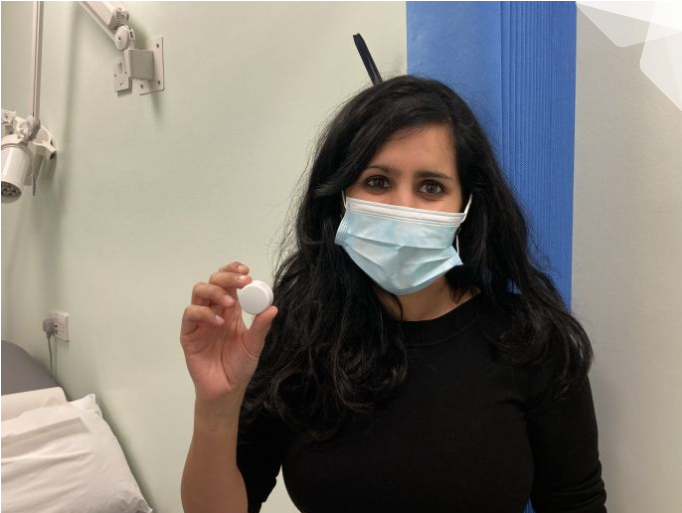
New research has confirmed that a device small enough to be delivered through the post can help doctors diagnose a common sleep disorder more easily.
AcuPebble SA100 allows doctors to diagnose obstructive sleep apnoea (OSA) at home as accurately as the standard diagnosis method, a paper published in the British Medical Journal Open has revealed.
The study, carried out by the Royal Free Hospital and led by respiratory consultant Dr Swapna Mandal, demonstrated both the accuracy and usability of the small device.
OSA is a serious condition, which causes sufferers to repeatedly stop breathing while they are asleep. Although patients always begin breathing again, it leads to disrupted sleep which means they are overly tired during the day. OSA is the second most common cause of road accidents due to tiredness and can lead to type 2 diabetes and high blood pressure.
Until recently, the condition could only be diagnosed using a complicated set of tests, which require patients to attend hospital and wear uncomfortable and complex devices overnight. An expert clinician is also required to manually analyse and interpret the sleeping patterns recorded on the device.
In contrast, AcuPebble SA100 consists of a single wearable sensor – the size of a 50p coin - attached to the neck with a medical adhesive, and a user-friendly mobile application.
It is worn overnight and in the morning the study is uploaded, automatically generated and sent to the clinician instantly. This makes the process easier and more comfortable for the patient, while the device’s low cost and automated diagnosis offer significant financial and time savings for the NHS and other healthcare organisations.
The Royal Free Hospital study involved 150 patients, all of whom had been referred for OSA diagnosis. Each patient was trained on using to traditional device, which they took to use at home, and was also given AcuPebble SA100, but without any training on how to use the system.
After both devices were worn overnight and returned, two expert clinicians manually scored the cardiorespiratory polygraphy signals to reach a diagnosis, which was then compared to the automated result generated by AcuPebble SA100.
In all cases, AcuPebble SA100 was as accurate as the traditional device. In addition, all patients were able to use the system correctly, and 97% said they preferred using AcuPebble SA100 over cardiorespiratory polygraphy.
Dr Mandal said: “These study results are great news for both sleep clinicians and patients. Demand for OSA diagnosis has been growing rapidly in recent years, and the long and often complex diagnostic pathway, along with the ongoing Covid pandemic, has left us with a backlog of patients to see. With AcuPebble SA100 now proven to be clinically equivalent to the current ambulatory gold standard, we have a way to diagnose more patients and improve their quality of life.”
Image: Dr Swapna Mandal with the AcuPebble SA100.
 Translate
Translate